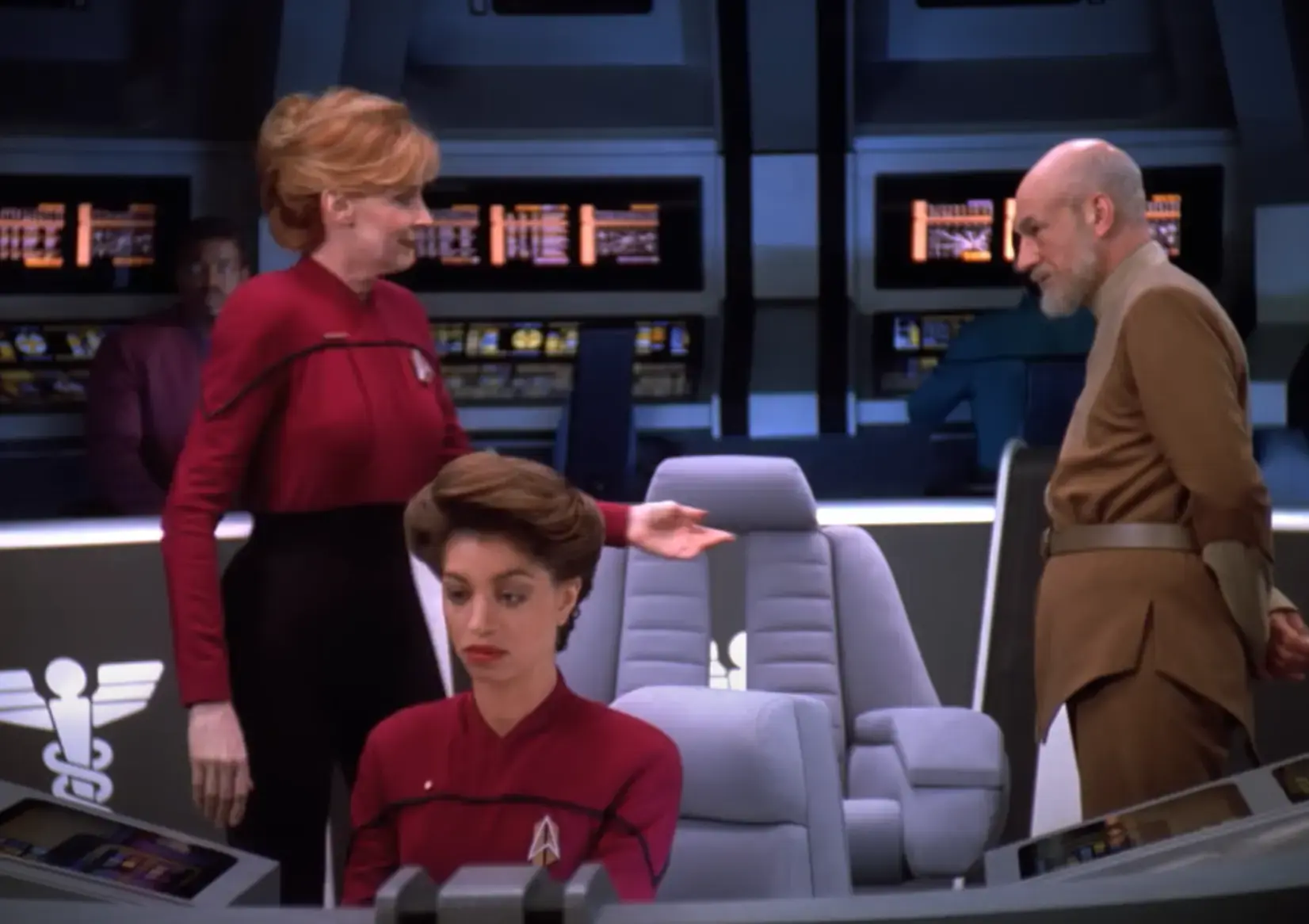A welcome dream of the future
I hope we can someday get there
But damn do we have a lot of work to do
Unless we kill all the greed, which I personally don’t see happening, we will never break the chains and reach this reality.
Another thing I like about Star Trek is the breakdown of religious belief that we are not created equal and everyone is emboldened to someone else to live.
I really hope humanity can reach this pinnacle, but until we quit living for the almighty dollar, we won’t. We are the Ferengi from the show.
To be fair even in trek - there’s a world war 3 that’s driven by pure greed before humanity decides it’s enough. And the climax of the greed and that war starts in 2026… so we might be on the course to the utopia … but not before suffering some more.
That’s the part that hurts. So much death necessary to move forward. I realize that’s the nature of society as we know it, but it would be nice if we could avoid all the senseless deaths to achieve it
TNG also failed to flesh out the details of how their economy worked.
It is very easy to say “everyone is just happy and behaves well”.
I’m willing to believe that for the most part, the world Star Trek inhabits is postscarcity - the widespread replicator technology leads me to believe that with easy access to energy and organic material, everyone can be fed and clothed with a minimum of expenditure, and with access to FTL travel and terraforming tools, land scarcity is no longer an issue either.
The economy is just a tool for the distribution of goods, services and land; it becomes unnecessary if everything necessary to sustain life (and probably quite a few luxuries and leisures) is readily available as it’s needed.
I can’t remember what series it is, but one of the newer series has a scene where someone is asking why the federation won’t give them replicator tech. And the federation dude basically lays out how replicator tech before society is ready leads to oppression not liberation. That humanity only got replicator tech after they already came together and threw off the old ways. Replicator tech didn’t lead to socialism for them. Socialism lead to replicator tech.
I think this was an Orville episode, wasn’t it?
Lmao yeah it was don’t know why I was thinking it was trek.
Because Orville is Trek
While the technology of star trek definitely plays a role in terms of it being anti capitalist, it’s not just the tech. If today somebody invented a replicator, it wouldn’t be a full decade before its use would be locked behind a dozen different tiered paywalls on top of the instalation cost, and then eventually it going through enshitification.
The societal values and culture in star trek values life, far, far above weath and profit to the point that such concepts are basically alien. And that has to be the first step for post scarcity tech to actually be used for the purpose of post scarcity.
I like to look at old science fiction shows/movies and see the blind spots.
In the 1960s, no one objected to Kirk dating women from other planets, but no network would have allowed Kirk to date Sulu.
The original TV shows were indeed very progressive, but the movies ruined everything on so many levels.
deleted by creator
Thanks for the recommendation. I wasn’t very optimistic about it TBH
I miss being this optimistic
I mean, yeah, sort of. Very, very progressive for the time. But they had a huge blind spot in the military structure, which is as hierarchical and patriarchal as ever. I am not talking about command and control structures, which are potentially effective, but about the idea that a single captain would run a star ship over long periods of time instead of being floated among different crews that get a chance to vote for their leader.
I wouldn’t say the patriarchal or hierarchical structure is a blind spot of Star Trek. They were ahead of their time. But if looking back at episodes from 1960s with today’s perspective, it does look dated and weak w.r.t representation of women and minorities.
Men are overrepresented in positions of power, especially in earlier series, but Star Trek has women acting as officers, captains and admirals.
Starfleet’s structure is military-like and hierarchical however it’s not depicted as a perfect structure. Captains or lower-rank officers regularly break orders, often get a pass afterward when their actions are justified.
Also, United Earth has a civil government, so does United Federation of Planets. The series focuses on the defense/exploration branch of the federation, which has a military structure. But it’s not representative of the structure of government for the whole federation.
Rotating leadership in a military-ish context in deep space sounds like the material conditions for the creation of factions and potential mutiny. If getting rid of every hierarchy, even ones you freely volunteer for, is the only way a future counts as positive, there’s no point in writing sci fi. Ordinary citizens in the Federation aren’t in a military hierarchy, and it’s post-scarcity, so people aren’t facing economic coercion to join Starfleet. Not conforming perfectly to your personal idea of utopia isn’t a blind spot, though Trek has many of those, as well.
Well Jim…here we ain’t.











